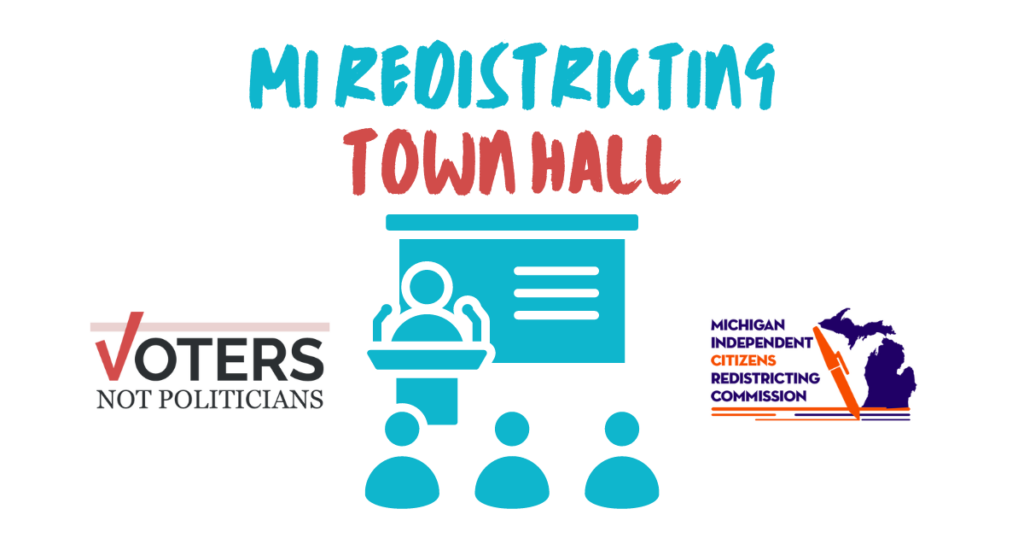Last month, we updated you on the latest developments in the court-ordered redraw of Detroit-area Michigan House districts. Since then, the court approved the maps submitted by the Michigan Independent Citizens Redistricting Commission, and both Voters Not Politicians and the MICRC have begun preparing for the state senate redraw.
Here’s how we got here and what happens next.
On February 28, the MICRC voted to send the Motown Sound FC E1 map to the court. The plaintiffs in Agee v. Benson then had the opportunity to file their objections to the commission’s map. Their main arguments centered around how “the remedial map is gerrymandered to ensure that no incumbents must face each other,” but provided no evidence to support this claim. Plaintiffs argued that it was statistically unlikely for no incumbents to face each other in a proposed map, but despite the fact that every meeting was public with every transcript published online, they failed to provide a single example of a commissioner considering incumbency.
The MICRC filed its response to these objections on March 15th, dealing with the plaintiffs’ points effectively and backing up their arguments with expert analysis.
The court-appointed Reviewing Special Master, Bernard Grofman, also submitted his own analysis of the MICRC map, and he “did not identify major flaws with the MI-IRC map that would suggest it failed to address the race-related constitutional concerns of the Court.”
On March 27, the three-judge federal panel ruled that the Michigan House district maps (otherwise known as Motown Sound FC E1) submitted by the MICRC will be used for the 2024 elections and beyond. In their decision, they recognized the public support for the map, and that the voided districts had been completely redrawn, now running east-west instead of in “spokes” that extended into Oakland and Macomb counties.
Now that a new House map has been approved by the court, both sides in this case will need to agree to a timeline for the Michigan Senate district map redraw. Thus far, the court has announced that they will approve a remedial Senate map by July 26th, 2024, and we anticipate the commission will begin redrawing the remedial Senate map in mid-April on a Thursday schedule.
During the house district redraw, Voters Not Politicians supported the redistricting process by reaching out to over one million Metro Detroit residents in affected districts through a digital ad campaign, hosting four public comment coaching sessions, and creating a grassroots digital toolkit voters could use to engage with the redraw process. Now, we’re preparing to quickly move on to the senate district redraw phase. The voided state senate districts (1, 3, 6, 8, 10, and 11) represent over 1.5 million Michiganders who will need to be kept informed and engaged during the next few months of this redraw process.
Voters Not Politicians will be hosting several educational town halls about the redistricting process. These include both virtual and in-person town halls to inform the public about the Michigan Senate redraw. Our first virtual town hall will be held on April 17th at 6 PM, and we will be joined by MICRC commissioners Anthony Eid and Cynthia Orton.

These town halls are designed for those residents who likely aren’t closely following the redistricting news, but who still want to make their voices heard regarding their representation. We are also preparing educational resources for residents of the affected state senate districts and planning a second digital campaign to engage the public in the redraw.
To stay up to date with the latest redistricting news and learn how you can support Michigan’s fair and transparent redistricting process in this next phase, sign up for Voters Not Politicians’ Weekly Update email here. You can also find more details about the redraw process so far in past editions of the weekly update.
